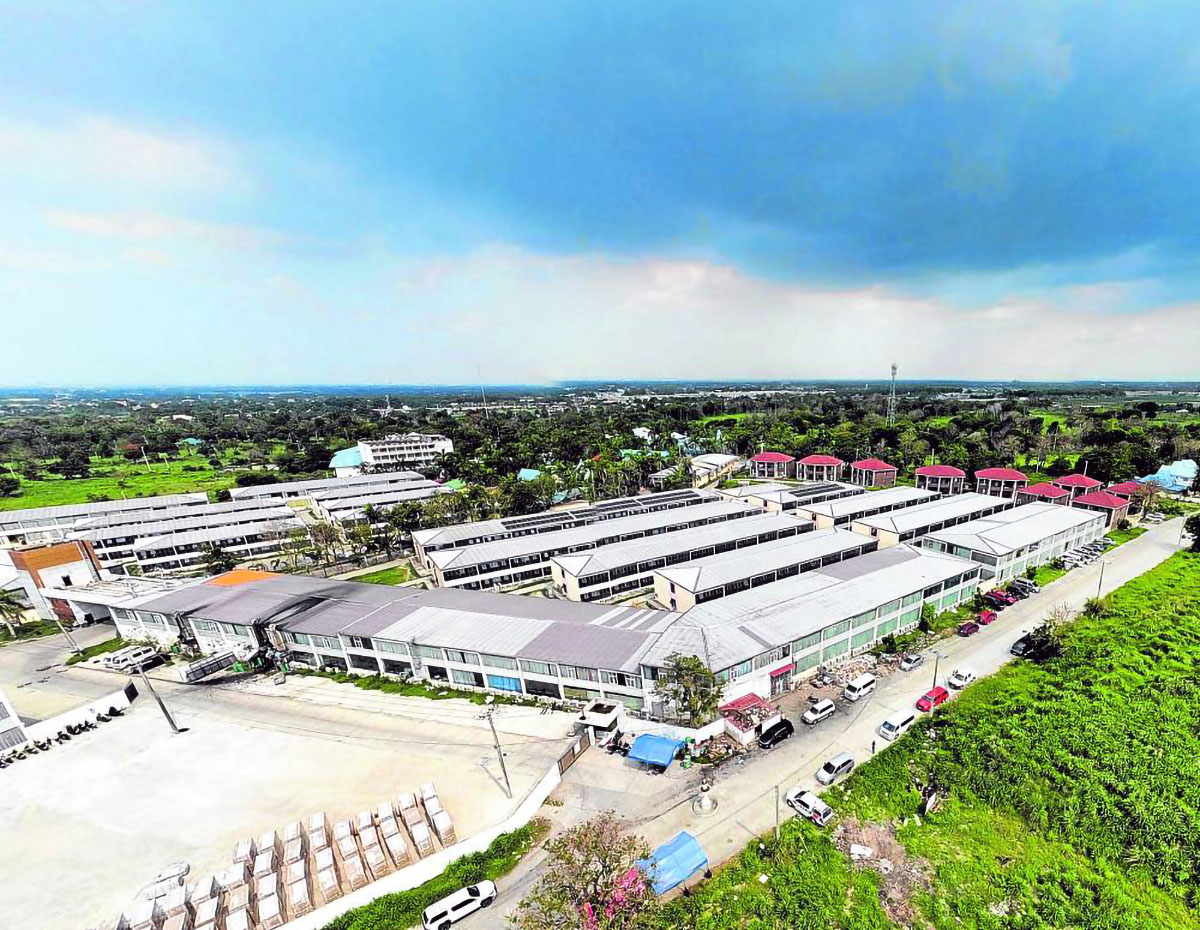
NOT SO LUCKY An aerial shot shows some of the 46 buildings in the sprawling 5.8-hectare compound of Lucky South 99 online gaming company raided and shut down early this month for operating illegally. —GRIG C. MONTEGRANDE
Beijing urged Manila on Friday to immediately ban online gaming operations, saying these were a “social ill” that was harming the interests of both countries and were being linked to “baseless accusations” and smears against China.
Speaking through its embassy in the Philippines, China said the Philippine offshore gaming operator (Pogo) industry had bred serious crimes like kidnapping, human trafficking, and murder.
The embassy said in a statement on Friday that a “vast majority” of Chinese nationals involved in the business were themselves victims of Pogos.
“Pogo is detrimental to both Philippine and Chinese interests and images as well as China-Philippines relations,” the Chinese Embassy said.
Growing concerns
“We appeal to the Philippines to ban Pogo at an early date so as to root out this social ill,” it said. “And we firmly oppose any baseless accusation and smearing against China in connection with Pogo.”
A Chinese diplomat did not elaborate on what the accusations and smears were about, saying only that these had been “widely publicized in (Philippine) media.”
She was referring to growing concerns among some lawmakers and government officials who suspect that Chinese-run Pogos could be used to stage cyberattacks and spy on the Philippine government, undermining its national security amid the escalating maritime conflict between the two countries in the South China Sea.
On Wednesday, Defense Secretary Gilberto Teodoro Jr. expressed his own opposition to all Pogo operations in the country, citing national security concerns.
“Why is it considered a national security concern? It weakens our political, economic, social, and peace and order fabric,” Teodoro told reporters.
Island Cove
In 2019, his predecessor, Delfin Lorenzana, said Pogo hubs, particularly those near military camps, could easily shift their activities to spying.
Lorenzana cited the former Island Cove in Kawit, Cavite, which had been converted into a Pogo enclave a few kilometers from a military base at Sangley Point.
READ: LGUs pressed to pass ordinance banning Pogo
The Chinese Embassy statement followed two separate raids by the Presidential Anti-Organized Crime Commission in March and early this month on two large Pogo companies allegedly operating illegally in sprawling properties in Tarlac and Pampanga.
In the raid on March 13 on Zun Yuan Technology’s Pogo hub in Bamban, Tarlac, the authorities rescued 868 Pogo workers, including 427 Chinese and 371 Filipinos.
In the June 4 to June 5 raid on Pogo company Lucky South 99 in Porac, Pampanga, at least 186 foreign and Filipino workers were rescued. Hundreds more were believed to have escaped after the company was tipped about the raid, according to officials.
Sex, scams, torture
Both companies are facing human trafficking charges. Investigators also found evidence of possible sex trafficking, online scamming, and torture. One Chinese national who was beaten up for refusing to participate in the online scam was rescued from a locked room showing signs of severe beating.
Pogos became legitimate businesses in the Philippines after they were taxed starting 2016 and fell under the state gaming regulator, Philippine Amusement and Gaming Corp. (Pagcor).
Underground
Pagcor chair Alejandro Tengco said they had started cracking down on unlicensed Pogos numbering around 250 to 300, about six times more than the 46 legitimate operators.
The online gaming industry expanded rapidly during the Duterte administration, taking advantage of the Philippines’ liberal gaming laws to target customers in China where gambling is illegal.
At their peak, Pogos totaled 300 and employed more than 300,000 Chinese workers.
The pandemic and tighter tax rules have forced many to relocate or go underground, Tengco said.
The Chinese Embassy said that Philippine and Chinese law enforcers kept close touch for multiple joint operations “to bring down cross-border gambling and telecom fraud.”
READ: PH deports 180 Chinese held in anti-trafficking raid
It said that since 2018, almost 3,000 Chinese nationals implicated in gambling and telecom frauds had been repatriated.
Earlier appeals
“In the past year alone, China has assisted the Philippines in shutting down five Pogo hubs and repatriated nearly 1,000 Chinese citizens,” the embassy said. In a statement issued in 2022, the embassy said Chinese citizens gambling overseas and opening casinos to attract Chinese citizens as primary customers were committing gambling crimes.
It was not the first time that China had appealed to the Philippines to shut down Pogo operations in the country.
In August 2019, Chinese Foreign Ministry spokesperson Geng Shuang said that China appreciated Pagcor’s move to suspend all applications for Pogos that same month.
“We hope the Philippines will go further and ban all online gambling,” Geng said.
He said online gambling was the “most dangerous tumor in modern society detested by people all across the world.”
Duterte’s worries
In justifying continued Pogo operations in September 2019, then-President Rodrigo Duterte said shutting them down would cause job and revenue losses.
Aside from employment, the country’s commercial building, condominium, and real estate owners also earn much from rental fees paid by Pogo companies.
In April this year, the Chinese Embassy said it supported government efforts to deal with Pogos following the arrest of several Chinese nationals linked to Pogos for possession of firearms and attempted bribery.
“The Chinese Government opposes and cracks down on Chinese nationals engaging in the gambling business abroad in accordance with law,” the embassy said. —WITH A REPORT FROM INQUIRER RESEARCH